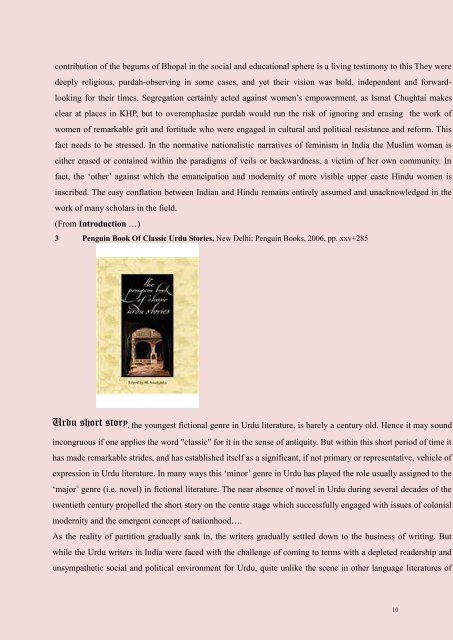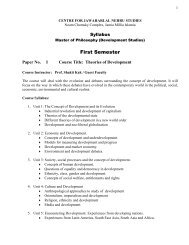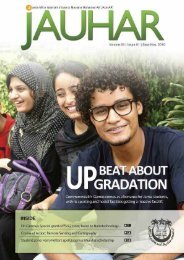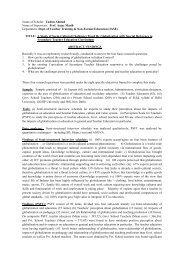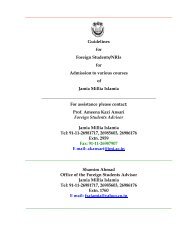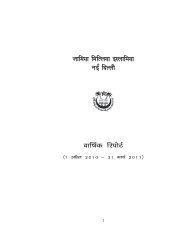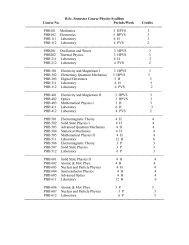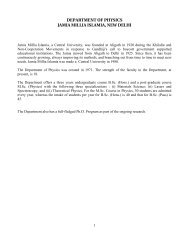View full profile - Jamia Millia Islamia
View full profile - Jamia Millia Islamia
View full profile - Jamia Millia Islamia
Create successful ePaper yourself
Turn your PDF publications into a flip-book with our unique Google optimized e-Paper software.
contribution of the begums of Bhopal in the social and educational sphere is a living testimony to this They weredeeply religious, purdah-observing in some cases, and yet their vision was bold, independent and forwardlookingfor their times. Segregation certainly acted against women’s empowerment, as Ismat Chughtai makesclear at places in KHP, but to overemphasize purdah would run the risk of ignoring and erasing the work ofwomen of remarkable grit and fortitude who were engaged in cultural and political resistance and reform. Thisfact needs to be stressed. In the normative nationalistic narratives of feminism in India the Muslim woman iseither erased or contained within the paradigms of veils or backwardness, a victim of her own community. Infact, the ‘other’ against which the emancipation and modernity of more visible upper caste Hindu women isinscribed. The easy conflation between Indian and Hindu remains entirely assumed and unacknowledged in thework of many scholars in the field.(From Introduction …)3 Penguin Book Of Classic Urdu Stories, New Delhi: Penguin Books, 2006, pp. xxv+285Urdu short story , the youngest fictional genre in Urdu literature, is barely a century old. Hence it may soundincongruous if one applies the word "classic" for it in the sense of antiquity. But within this short period of time ithas made remarkable strides, and has established itself as a significant, if not primary or representative, vehicle ofexpression in Urdu literature. In many ways this ‘minor’ genre in Urdu has played the role usually assigned to the‘major’ genre (i.e. novel) in fictional literature. The near absence of novel in Urdu during several decades of thetwentieth century propelled the short story on the centre stage which success<strong>full</strong>y engaged with issues of colonialmodernity and the emergent concept of nationhood….As the reality of partition gradually sank in, the writers gradually settled down to the business of writing. Butwhile the Urdu writers in India were faced with the challenge of coming to terms with a depleted readership andunsympathetic social and political environment for Urdu, quite unlike the scene in other language literatures of10


